My mom, Constance Bailey-Kaiser poses for a portrait at her apartment complex in Mooresville, North Carolina.
"That's what I do, I keep on going" -
Constance Bailey-Kaiser
Text, images, and interview by: Natasha Kaiser
Archival footage provided by: Constance Bailey-Kaiser
45 years after the accident that broke her neck and partially paralyzed her three weeks after her 18th birthday, my mother is no stranger to the difficulties of living as a person with a physical disability. “For 17 years I was like everybody, I didn't even get to enjoy my 18th, just about to graduate high school and then all of a sudden, you know, all that's wiped out, it's very depressing.” She says about life after the accident.
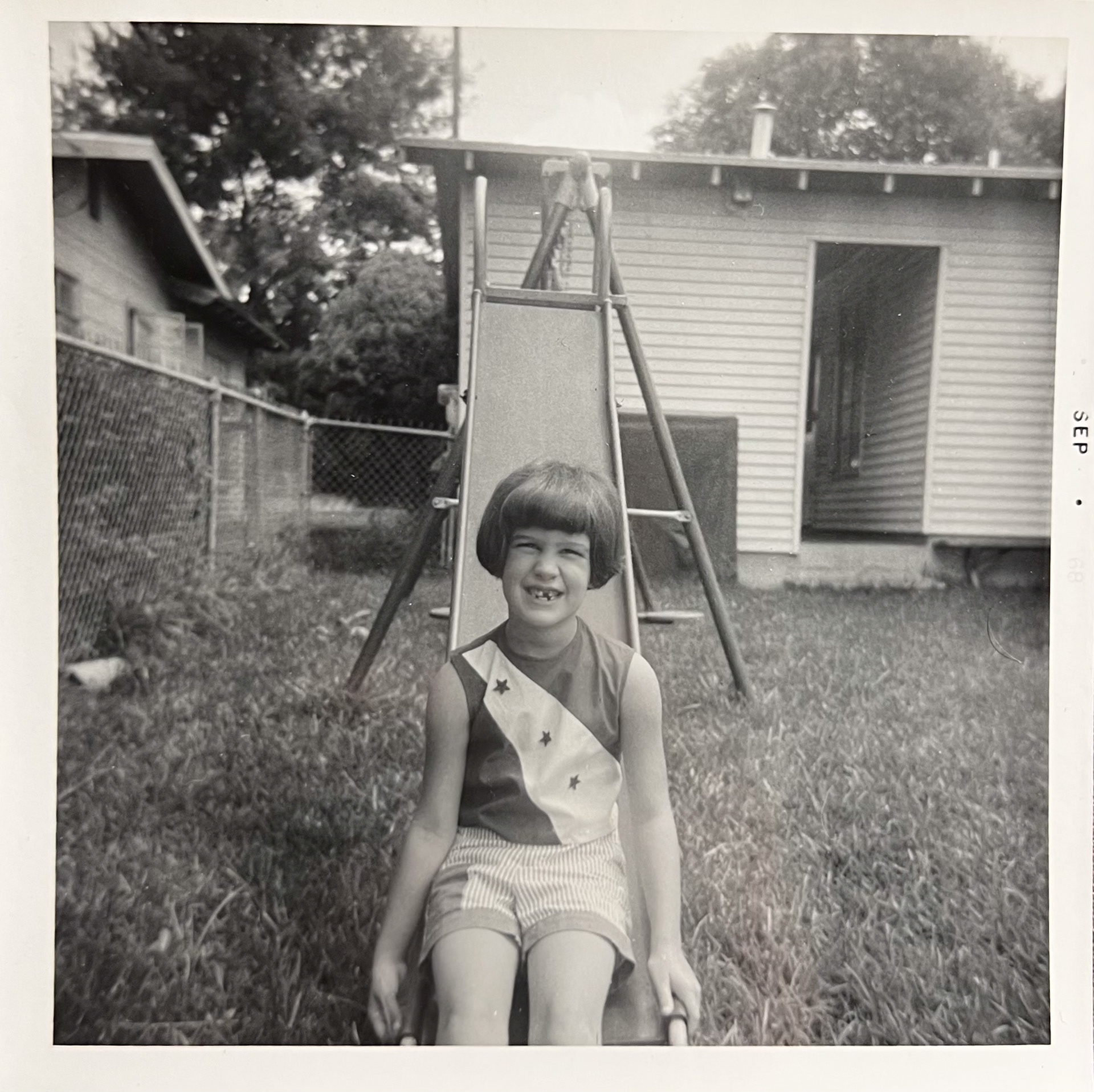
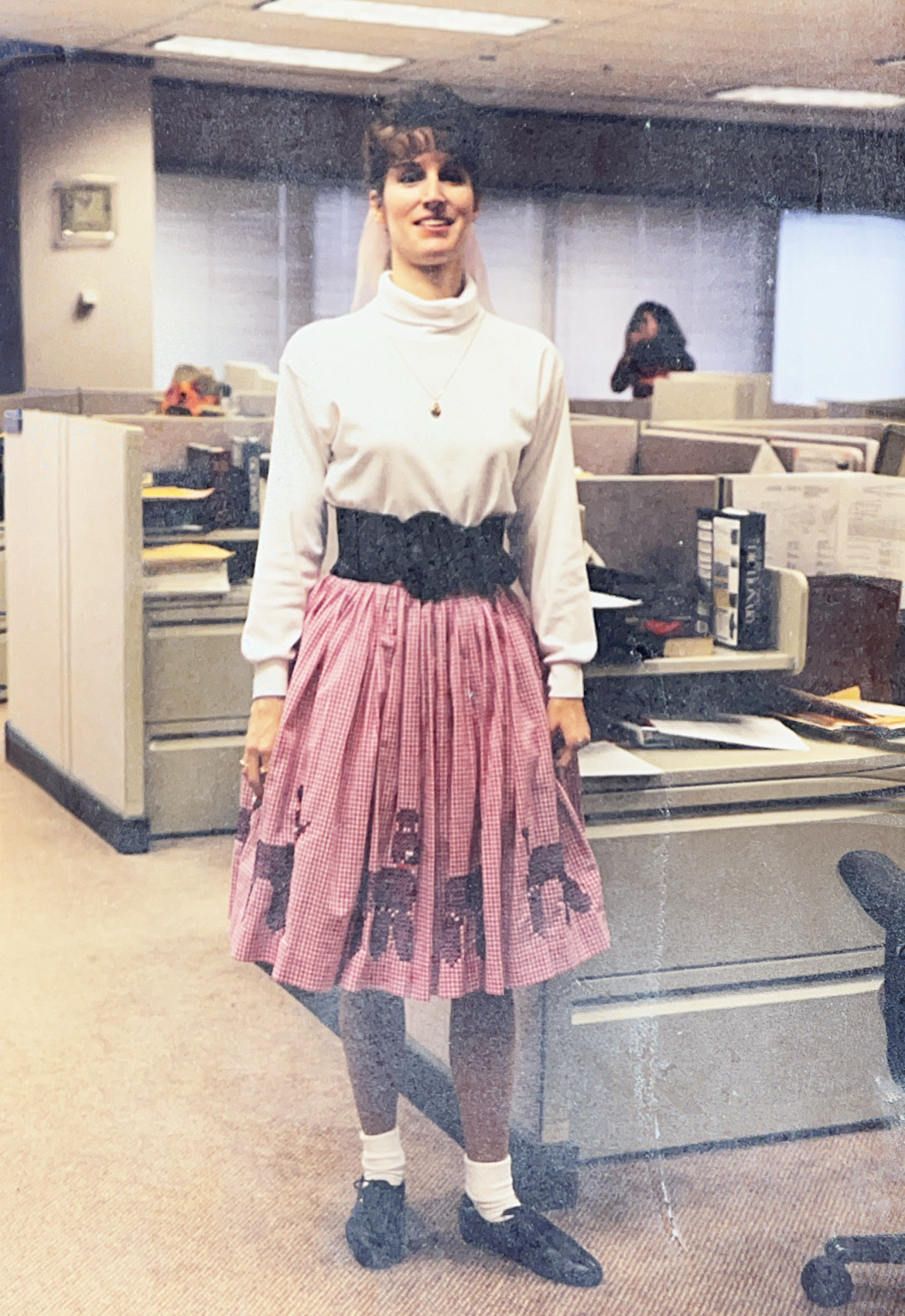
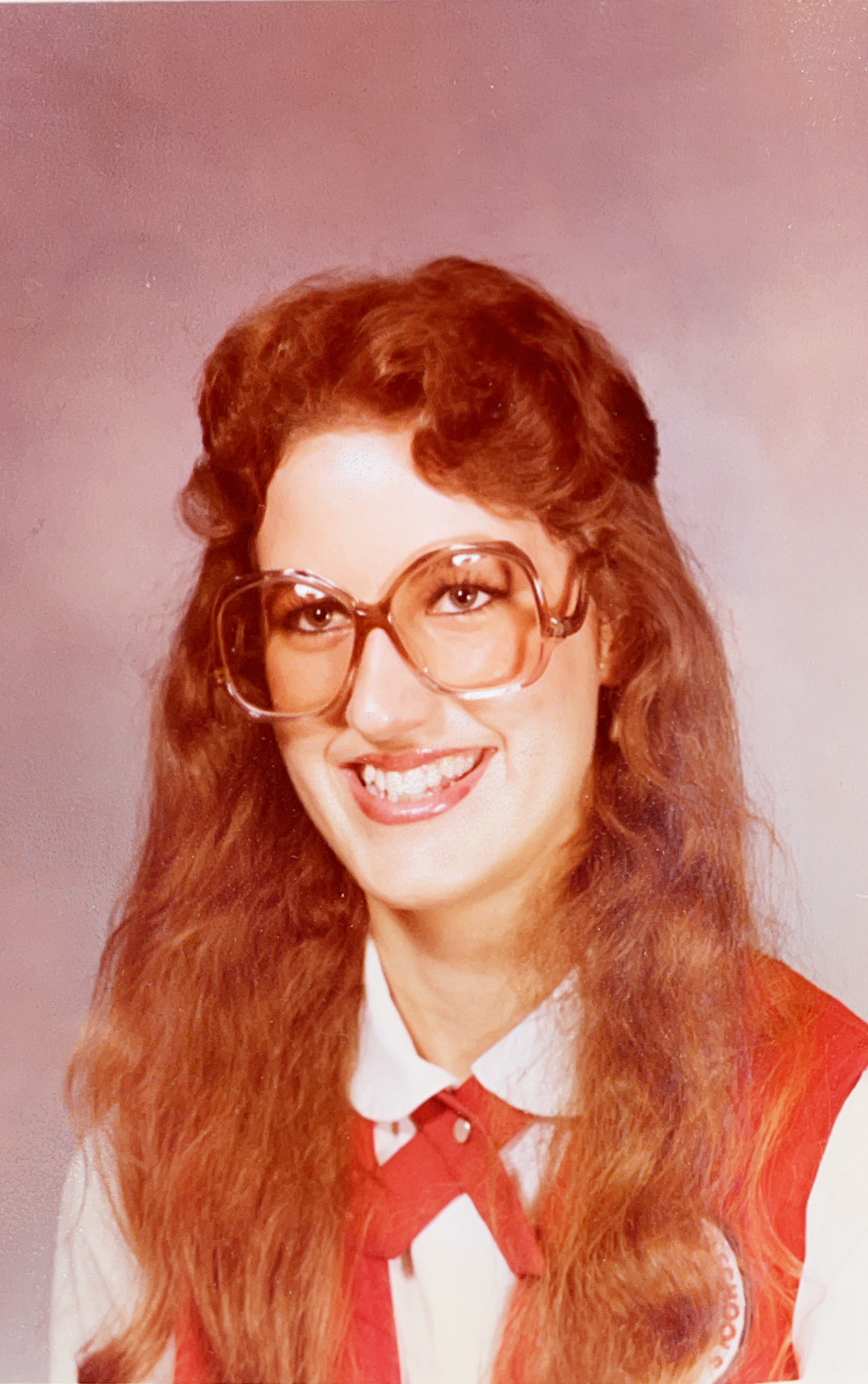
Images of my mother before the accident. From left to right- 1968, 1979, 1979.
The rainy Valentine's Day of 1980 is not a day to be forgotten for my mom. A typical drive to school in the passenger seat turned near fatal after an overcorrection from the driver of the vehicle sent the car flipping 5 times out into the middle of a field. When the car finally came to a stop the vehicle was upside down. The two girls inside were alive, her friend walked away, she did not.
A New Start to a New Life
The healing process was not easy, within the first 6 months of her healing journey, she had legally died three separate times. Because of her fragile condition, my mom stayed in the hospital for almost 4 months; racking up a quarter of a million dollar debt that her working single mother could not afford to pay. She says she still doesn't know what happened to the bill, that one day her mom, my grandmother, just stopped talking about it and she didn't question it.
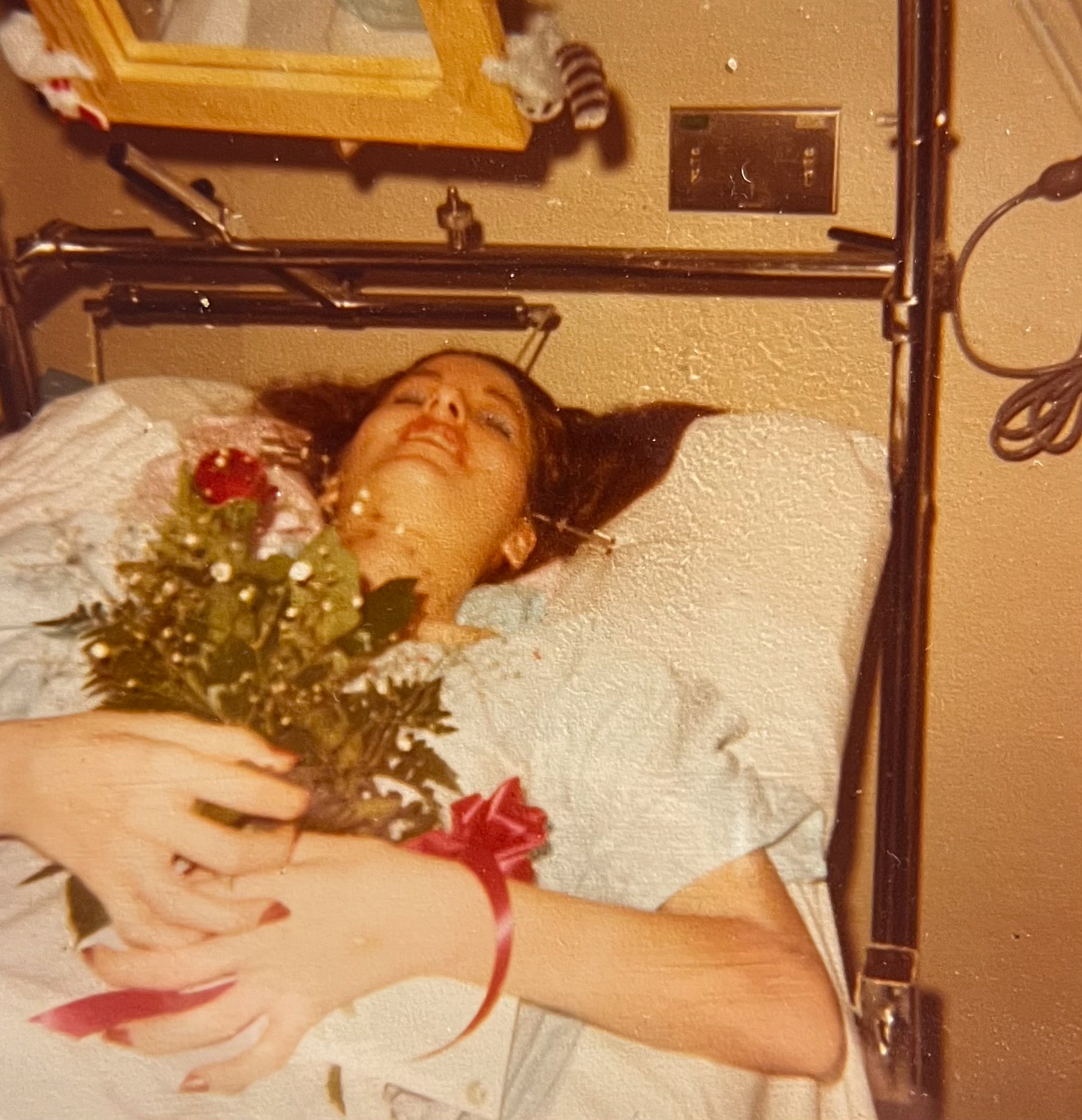
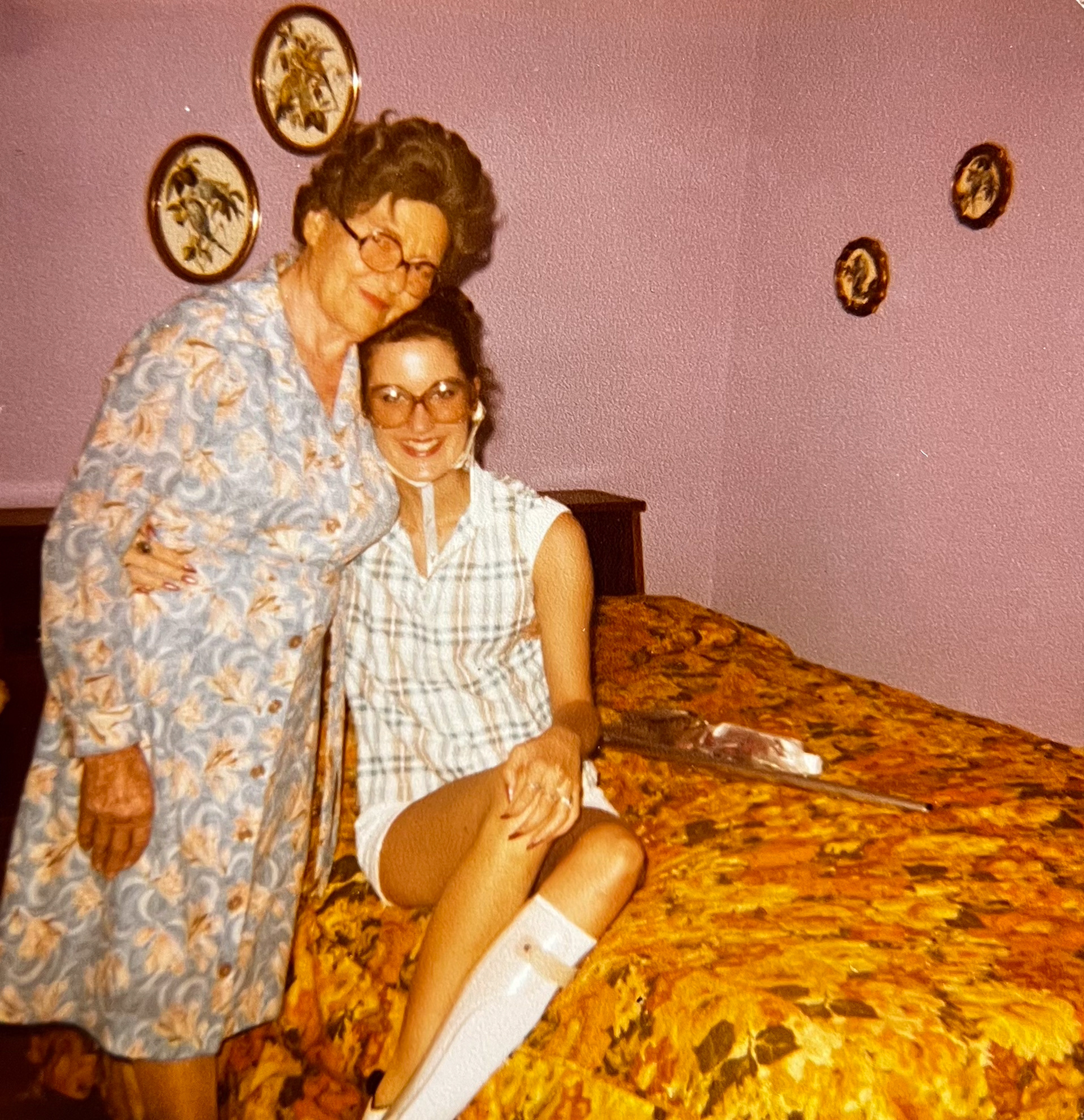
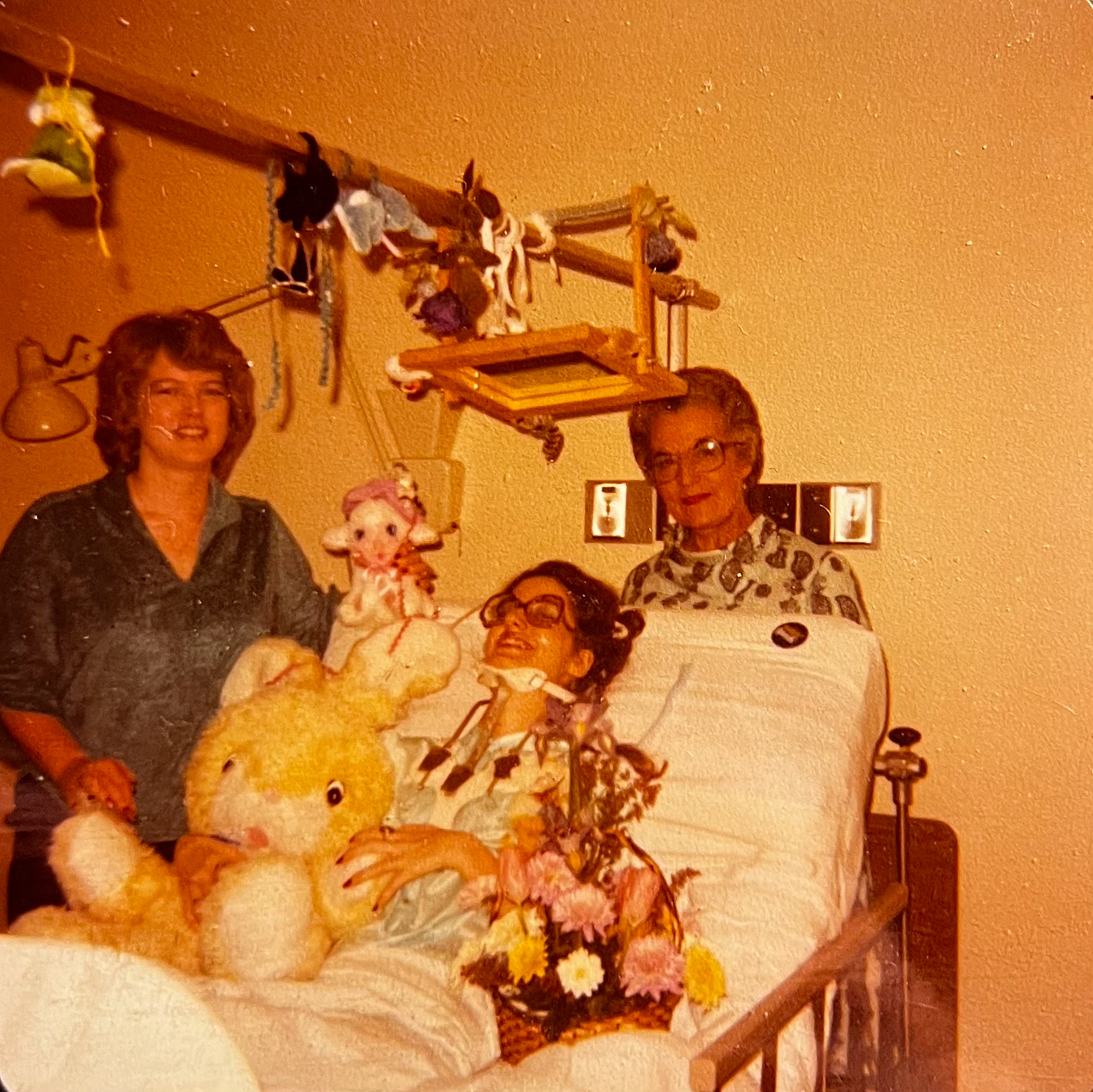
Photos from my mom's recovery. From left to right- days after the accident, Easter Day, first days home after leaving the hospital.
The physical disability was not the only thing she was grappling with though, a serious brain injury that had come along with the accident had rendered her amnesic, the last year of her life she had totally forgotten. Returning to high school was also challenging, graduating a year later because of the accident and later moving to college by herself- my mom continued to experience difficulties navigating her new life.
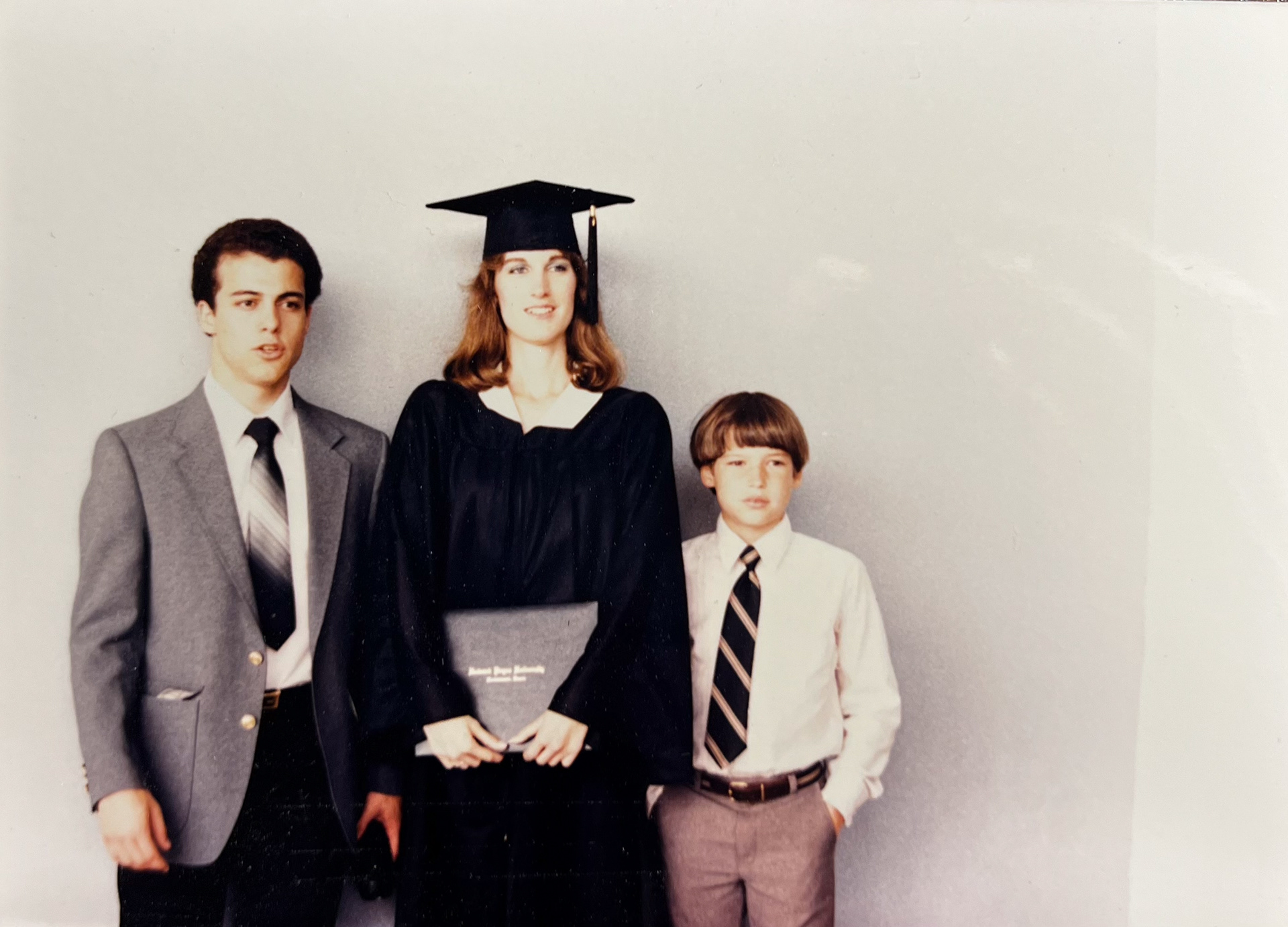
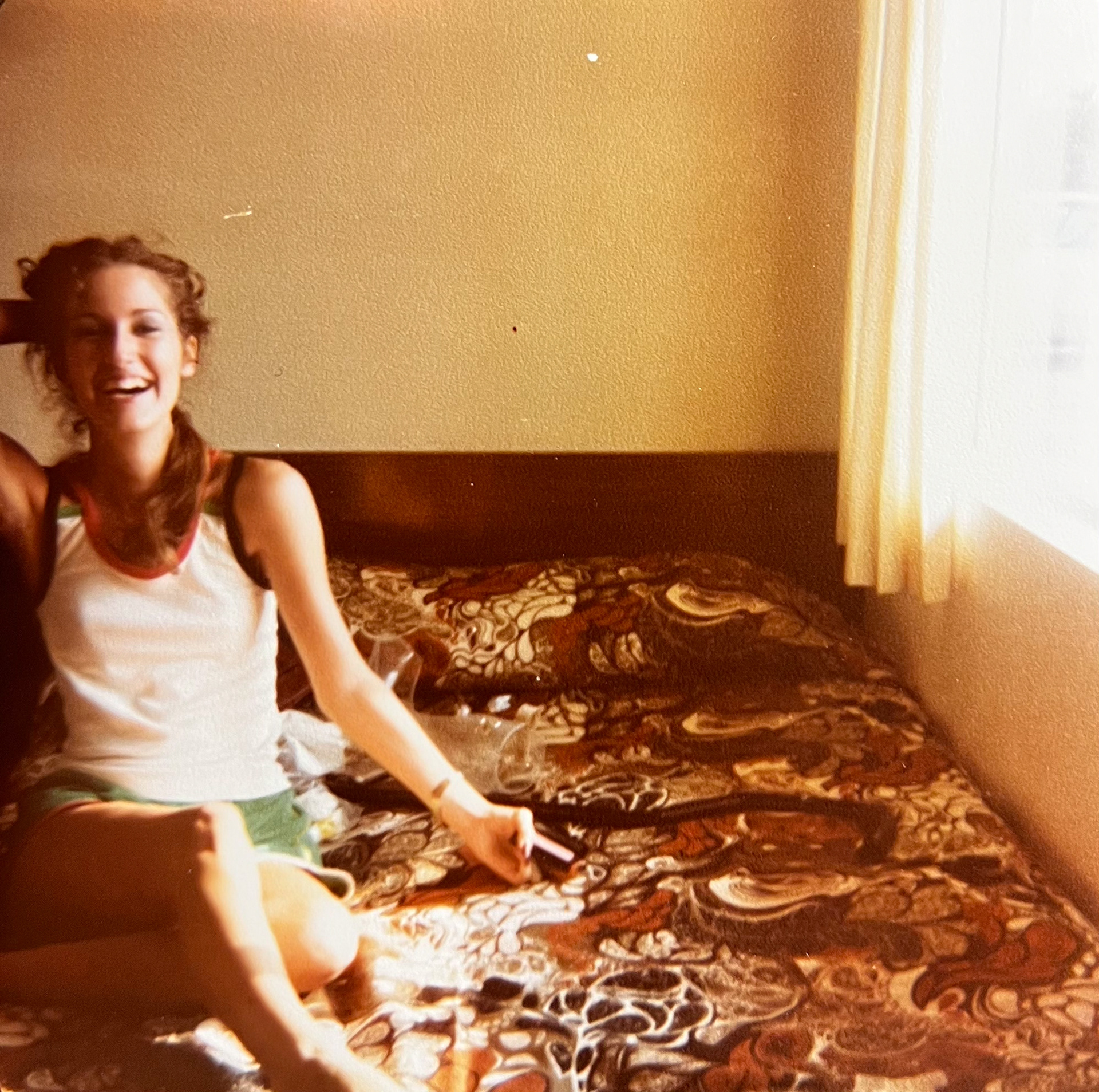
Left, the day of my mother's graduation from high school. Right, a photo taken by a friend after the accident.
A moment she remembers vividly is going to the disability office on her college campus while using a wheelchair for transport, and being able to get out of the wheelchair. She remembers the look on other wheelchair users' faces in the office and the guilt she felt was profound.
“I wasn’t able-bodied enough for the able-bodied people, I wasn’t disabled in the for the disabled people. And so when you're in that kind of limbo between the two worlds is not easy”
“I wasn’t able-bodied enough for the able-bodied people, I wasn’t disabled in the for the disabled people. And so when you're in that kind of limbo between the two worlds is not easy”
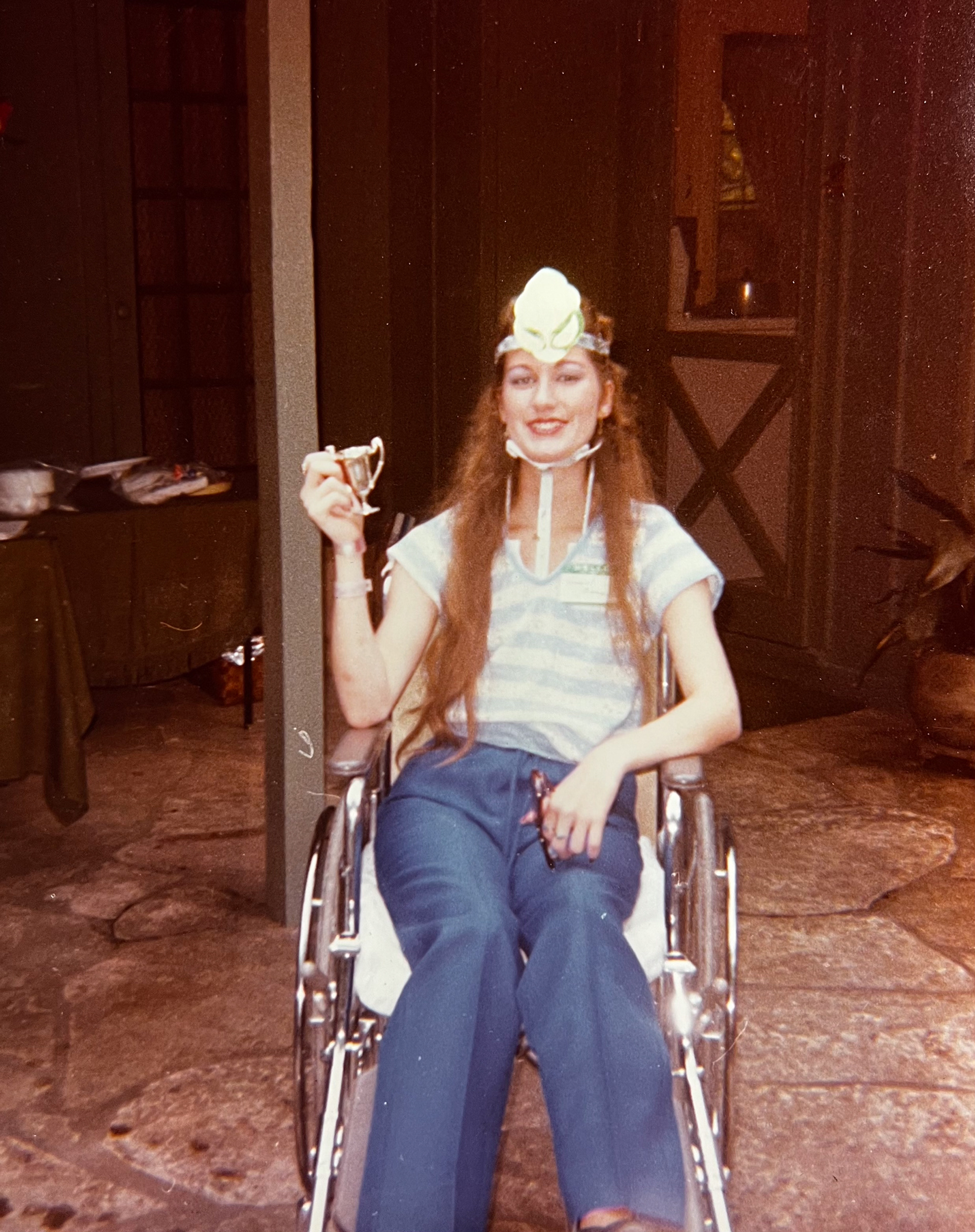
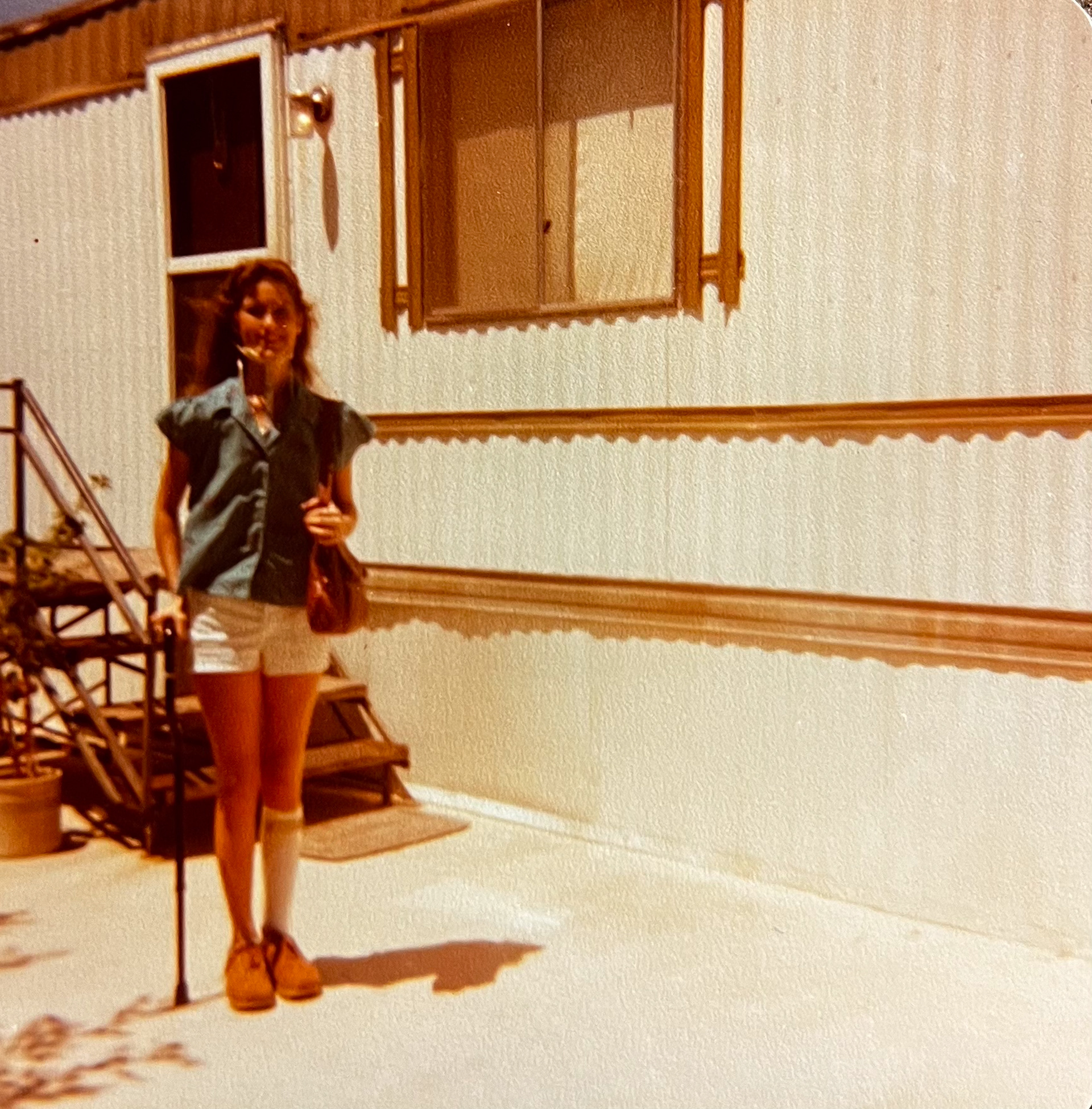
Left, my mom sits in a wheelchair after the accident during a party. Right, my mom stands for a portrait circa 1980.
Life after the accident was completely different for her, the modeling career she had worked so hard for was now in jeopardy; a contract she had gotten to work in Mexico now rescinded and her personal dynamics with those she knew, totally different.
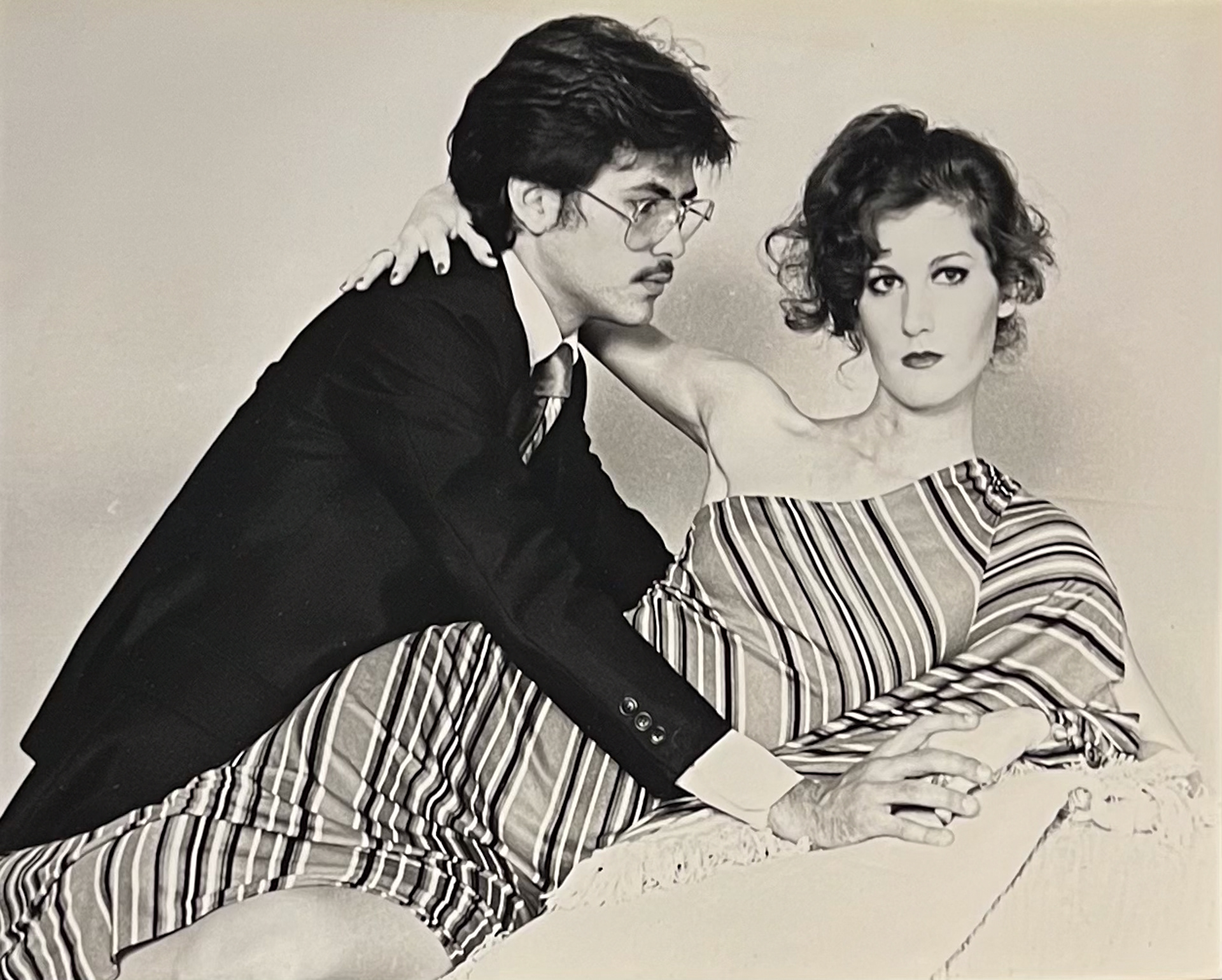
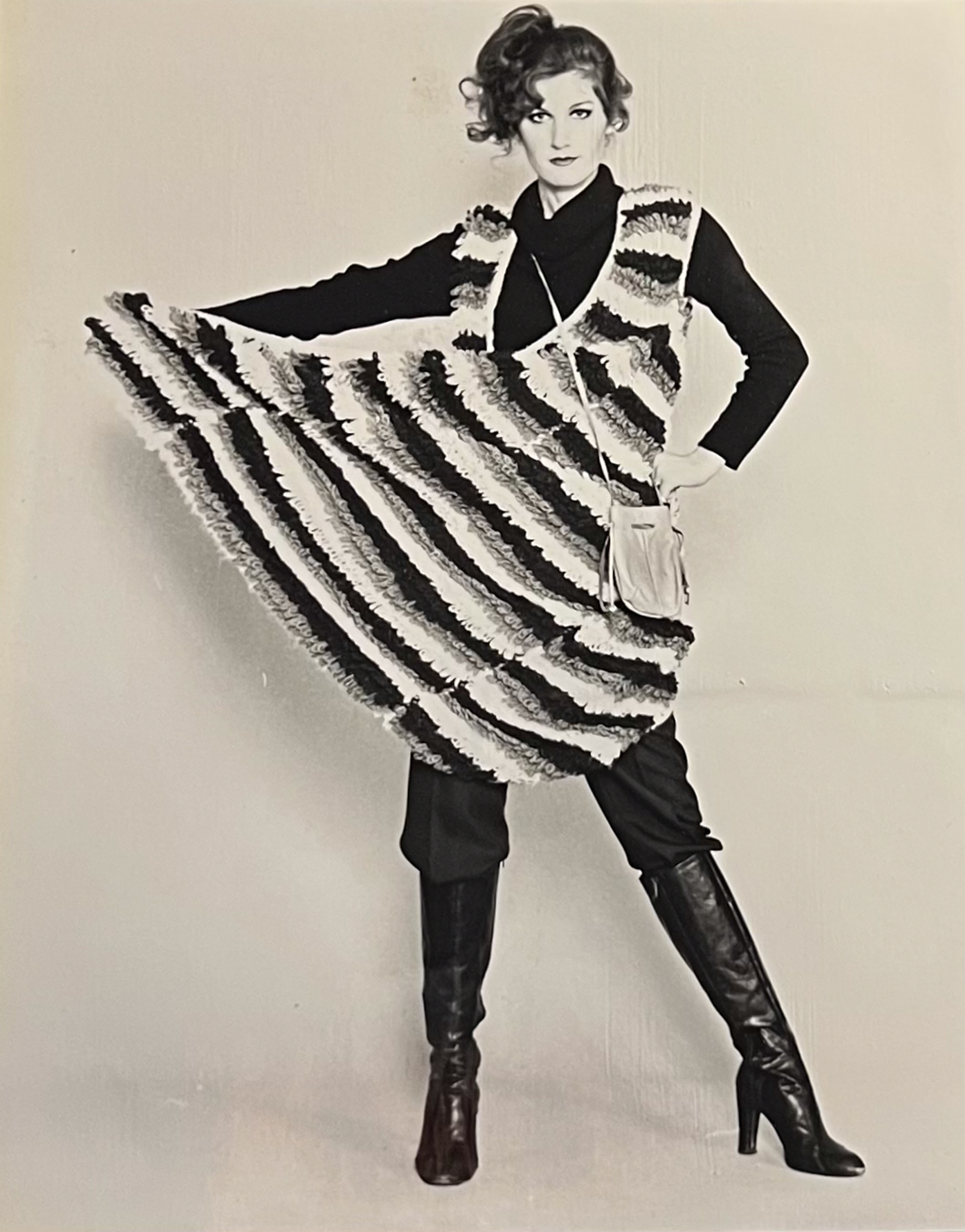
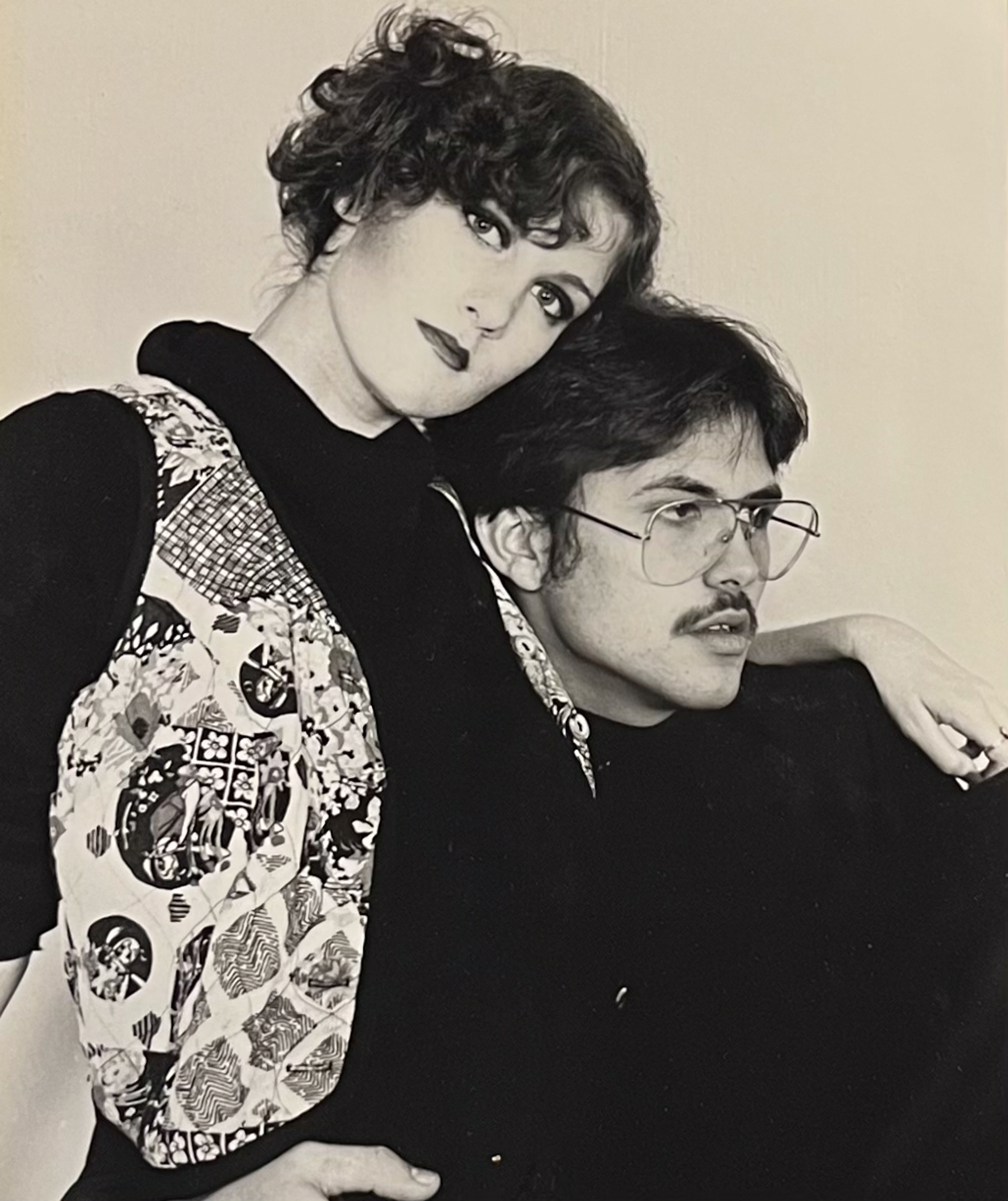
Images from my mom's modeling portfolio
Growing up deeply religious, she was no stranger to the church. A devout Baptist, my mom remembers going to church after the accident and feeling fearful at the people approaching her that she couldn’t remember, the amnesia making it hard for her to interact with those she once knew. Further, the spiteful remarks of her own grandmother that she had been crippled by God as a punishment stays with her to this day
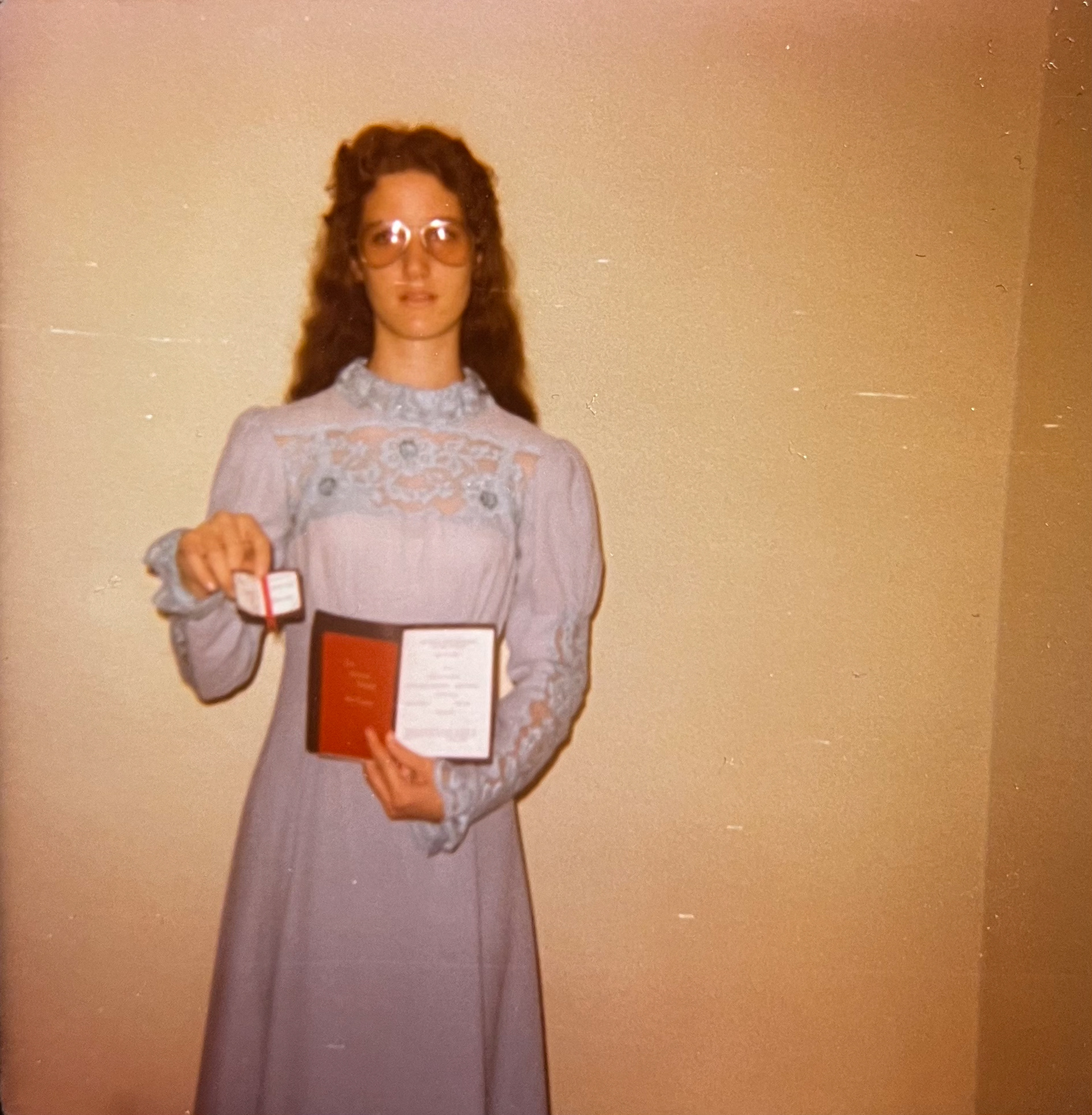
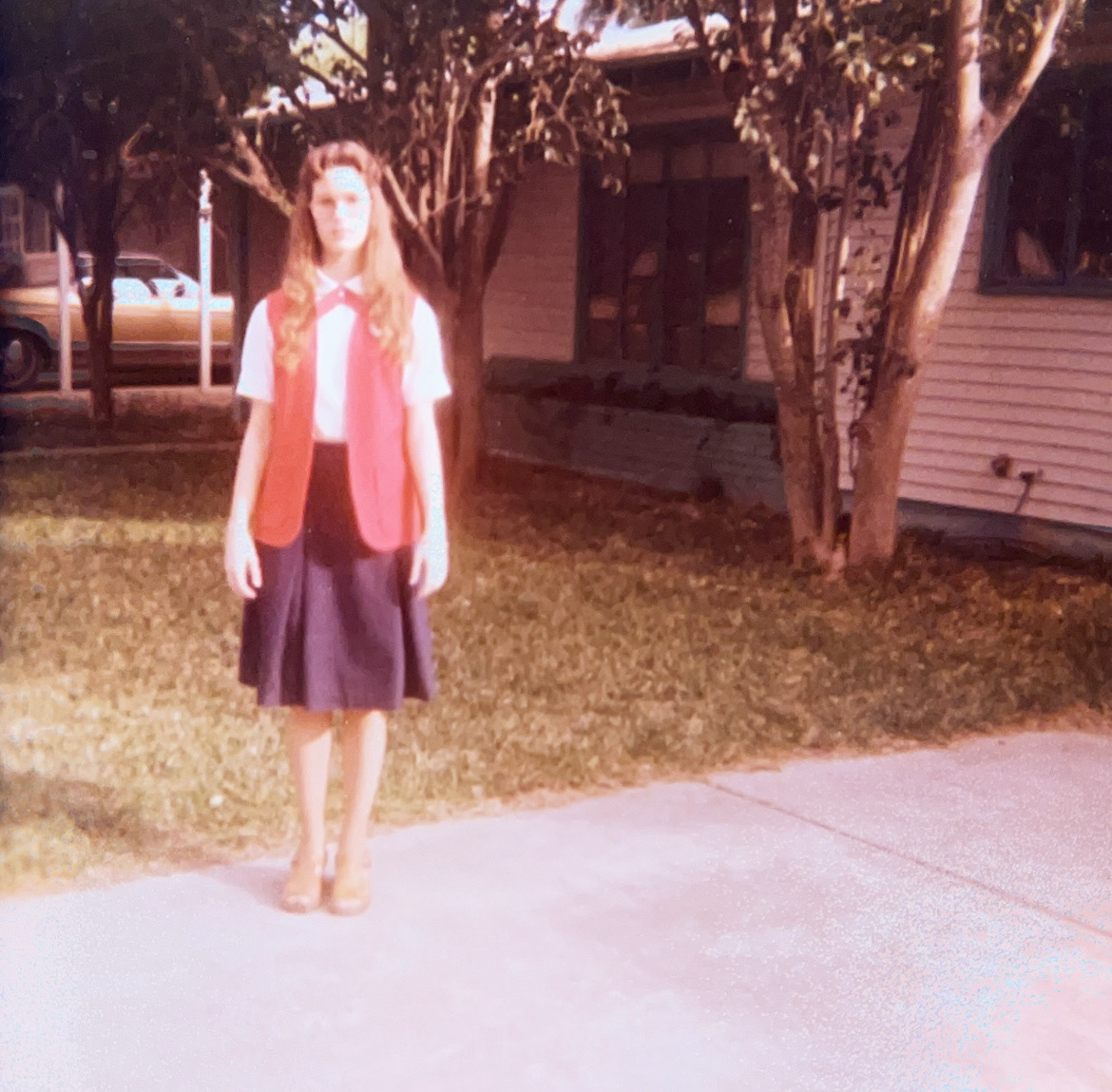
My mom before the accident with her school issued bible dressed in her "Sunday Best" (left) and dressed in her catholic school uniform before school (right).
The Realities of Motherhood
My mom knew she always wanted children and her doctors telling her she would never be able to have children after the accident didn't stop her. Giving birth to my brother, Joshua, in 1997, then experiencing four miscarriages and later giving birth to me in 2004. But pregnancy was the easiest part, giving birth to me permanently altered her body; a slightly misplaced epidural caused permanent nerve damage to her back that still affects her today
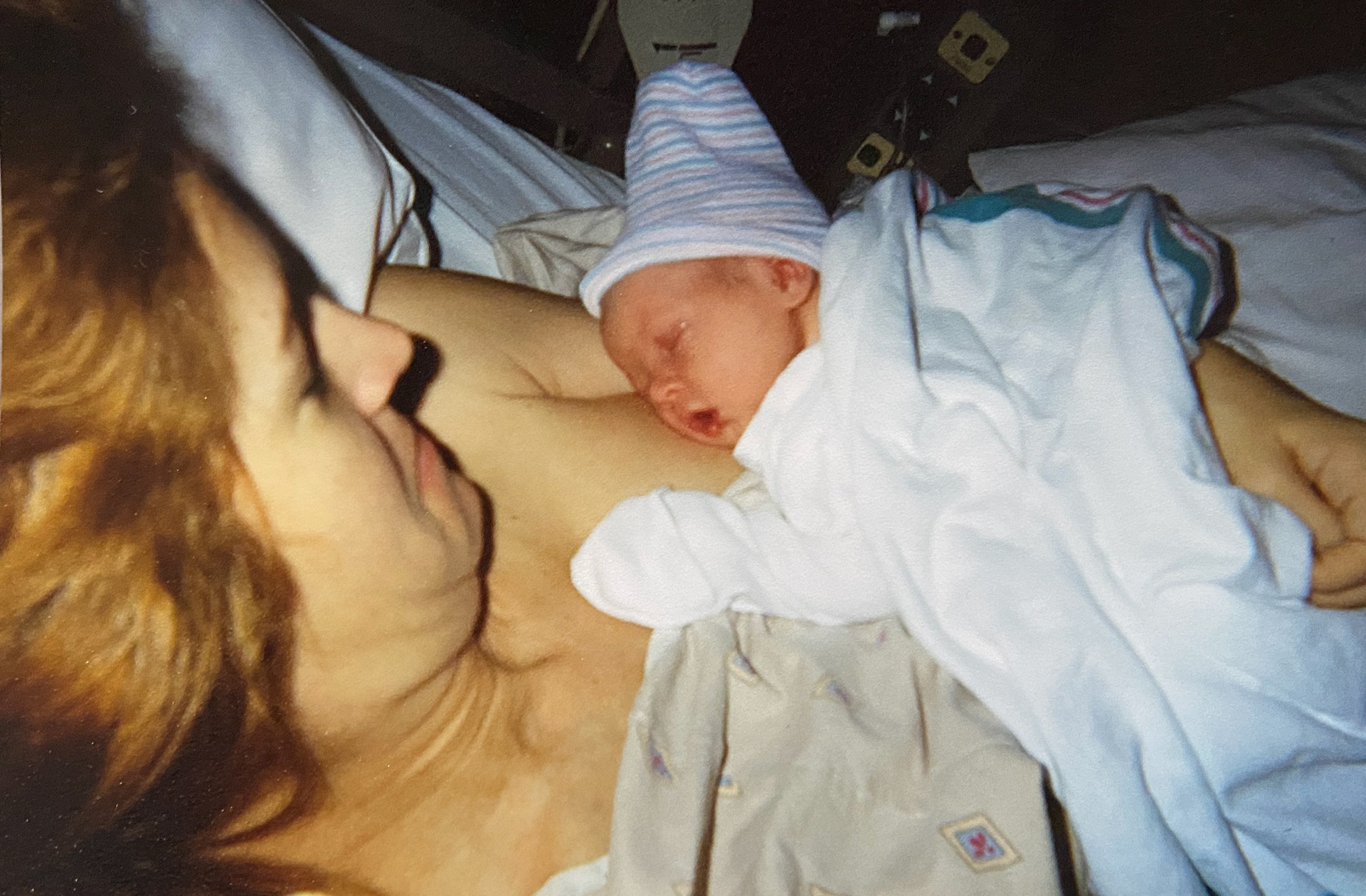
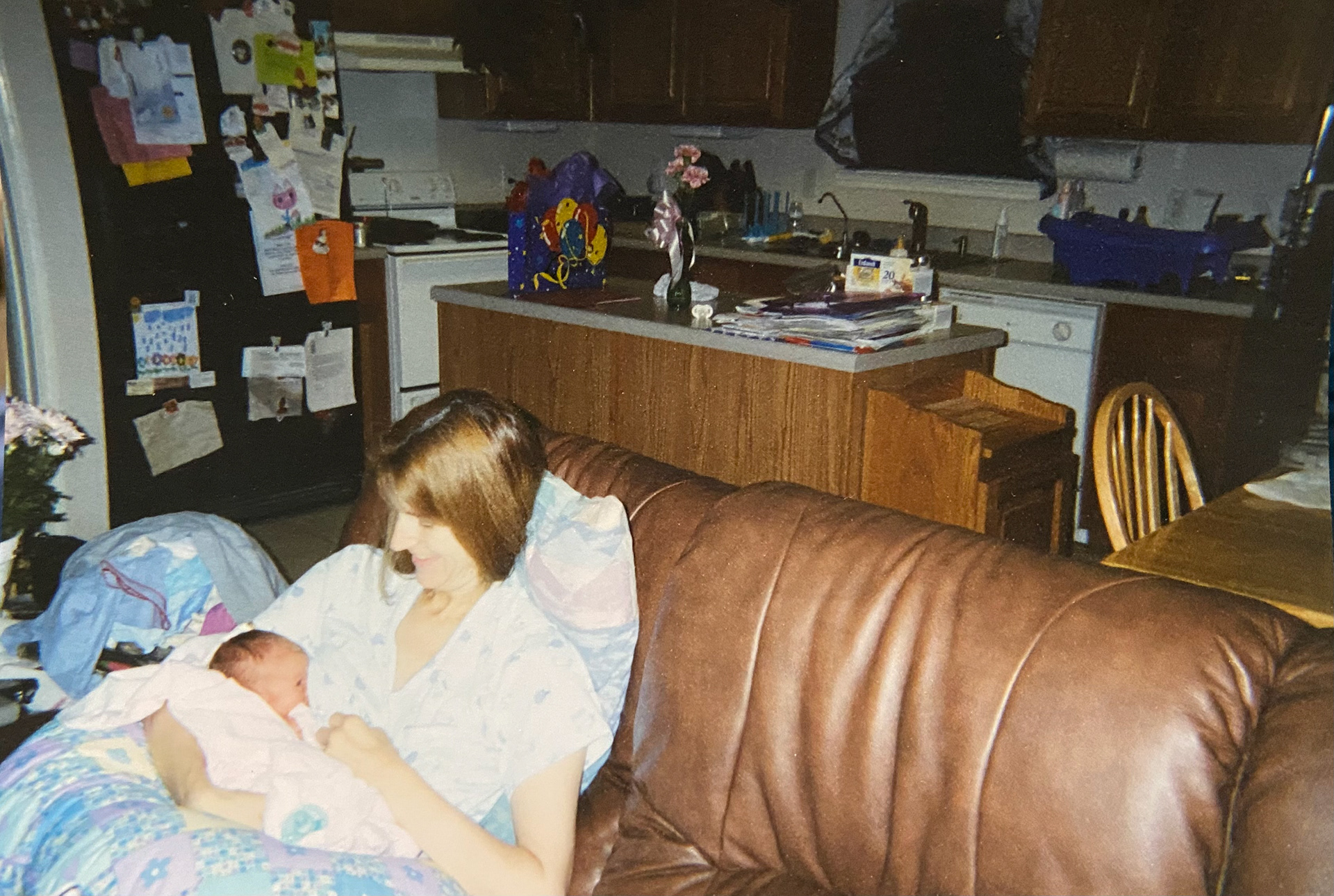
My mom holding me as a newborn a week after I was born (left) and holding me in the hospital after giving birth (right).
Life as a mother with a disability was nerve-wracking for my mom, worried that my brother and I would be embarrassed by her disability or that other parents would think less of her because of the challenges she faced physically with raising us. Throughout my childhood though I never fully grasped what made my mom different. To me, she was just my mom and while she might not have been able to do all the physical things other parents could, that didn't make her any less of a parent to me, I loved her all the same.
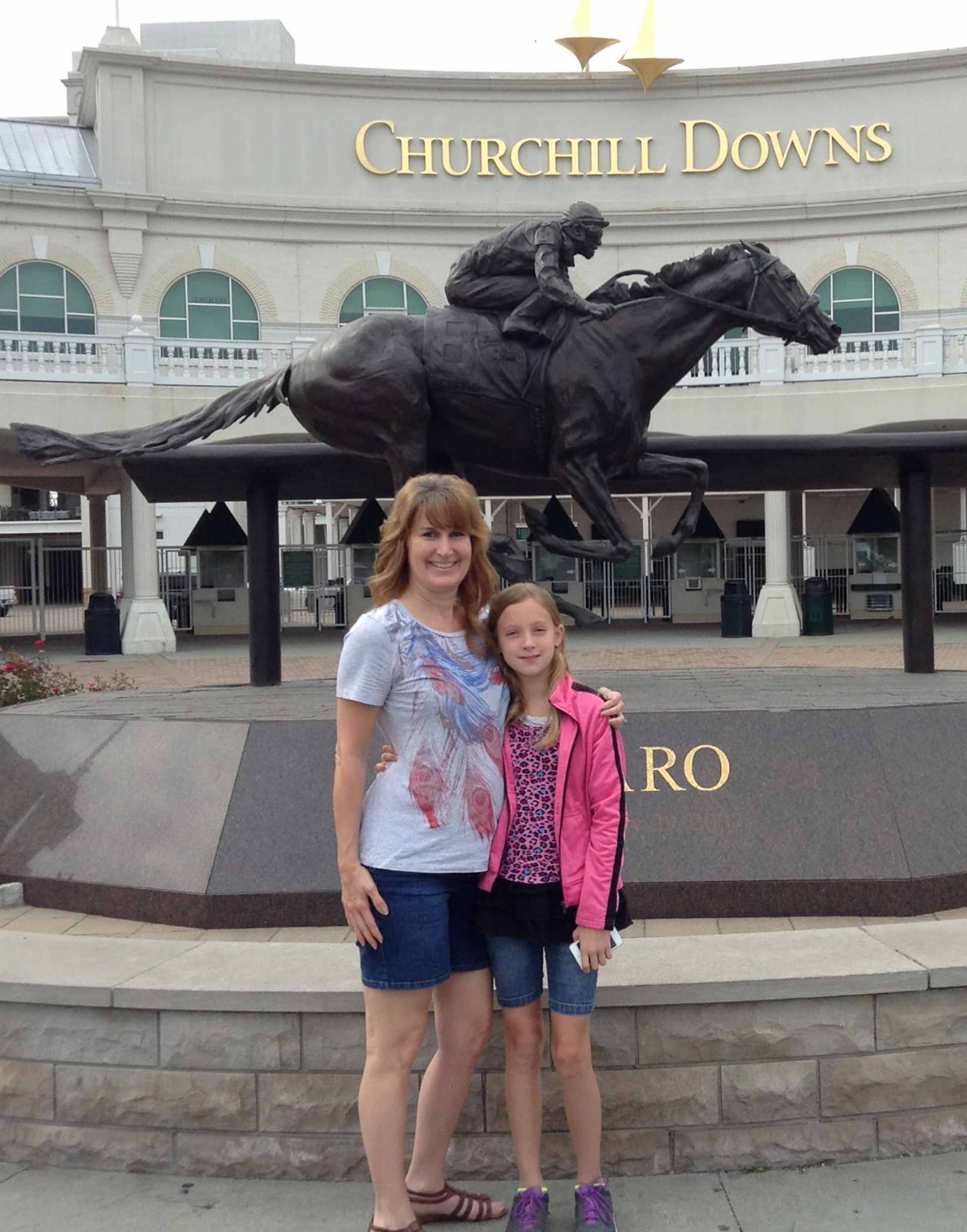

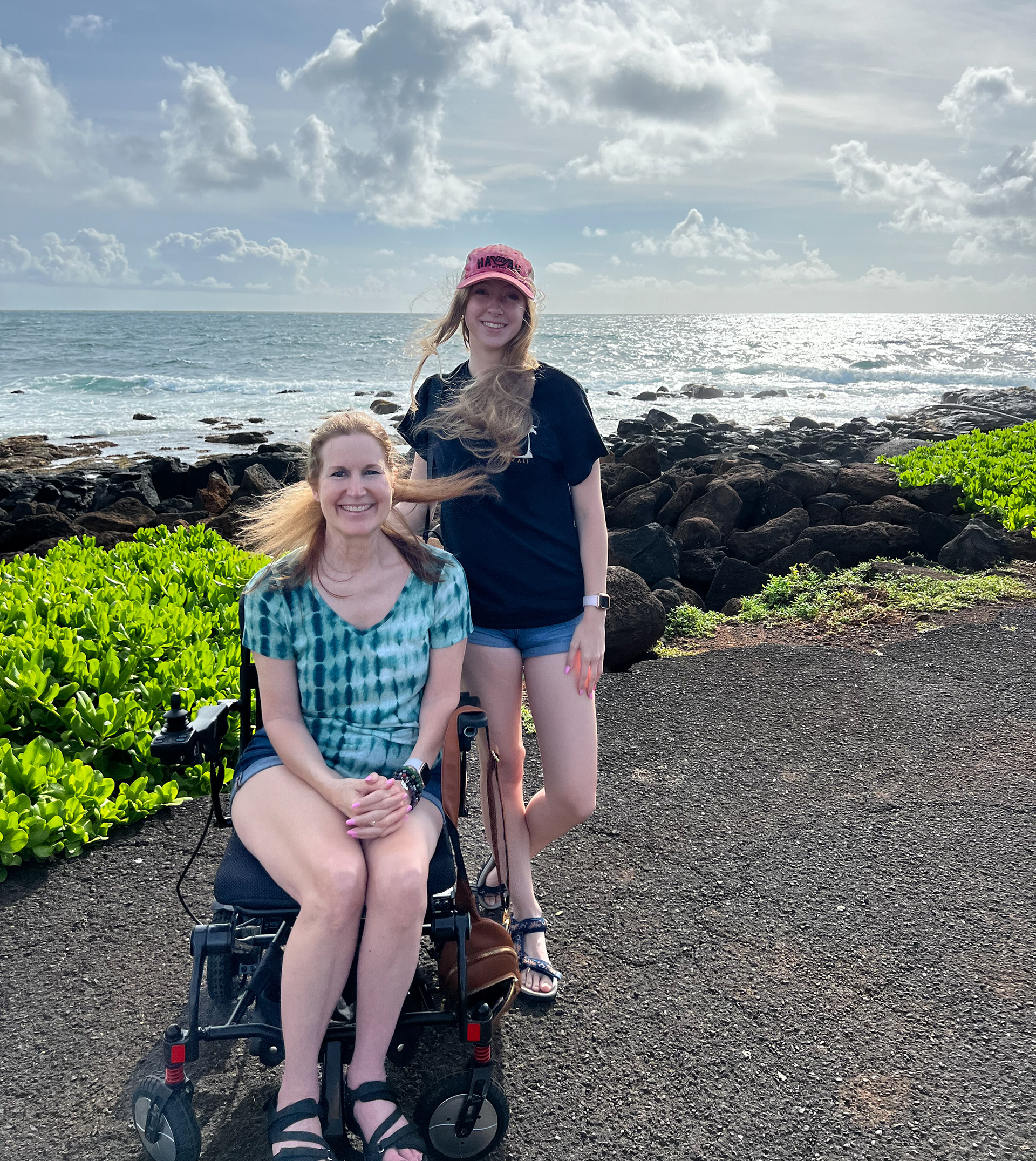
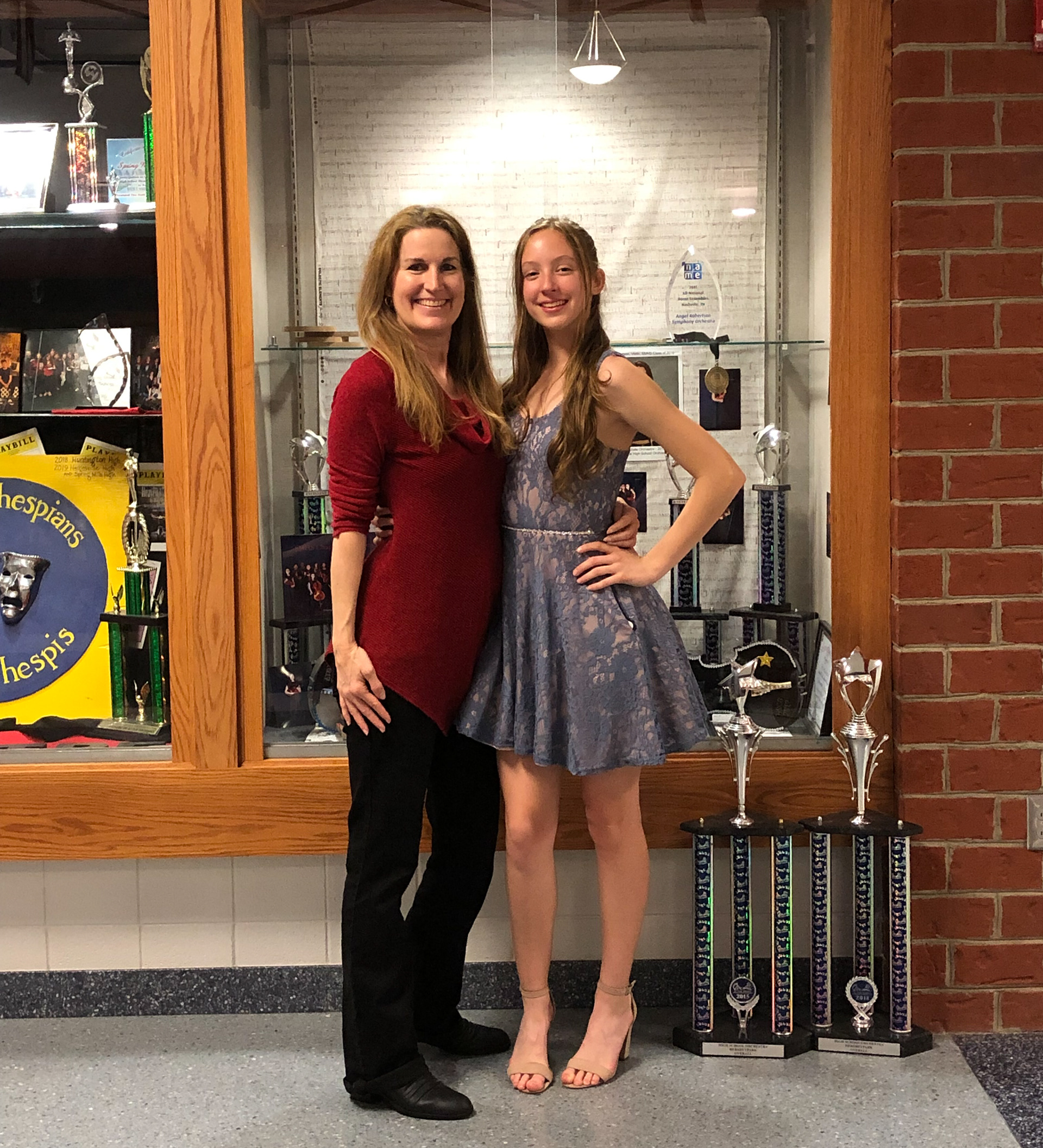
Archival images of important moments in my life my mom was able to attend.
Life in the Current Day
Living independently can sometimes be no easy feat for those living with physical disabilities, “ I can’t go shopping without planning all of it out and trying to have someone go with me. If no one can go with me I just have to hope someone will be there to help me, if they’re not, sometimes I just have to turn around and come back home.”
Even leaving her apartment is a challenge, on this particular day, I helped her to get out to a grass patch in her apartment complex to help her with an arts and crafts project. Here, she was able to put her feet in the grass for the first time in over two years.
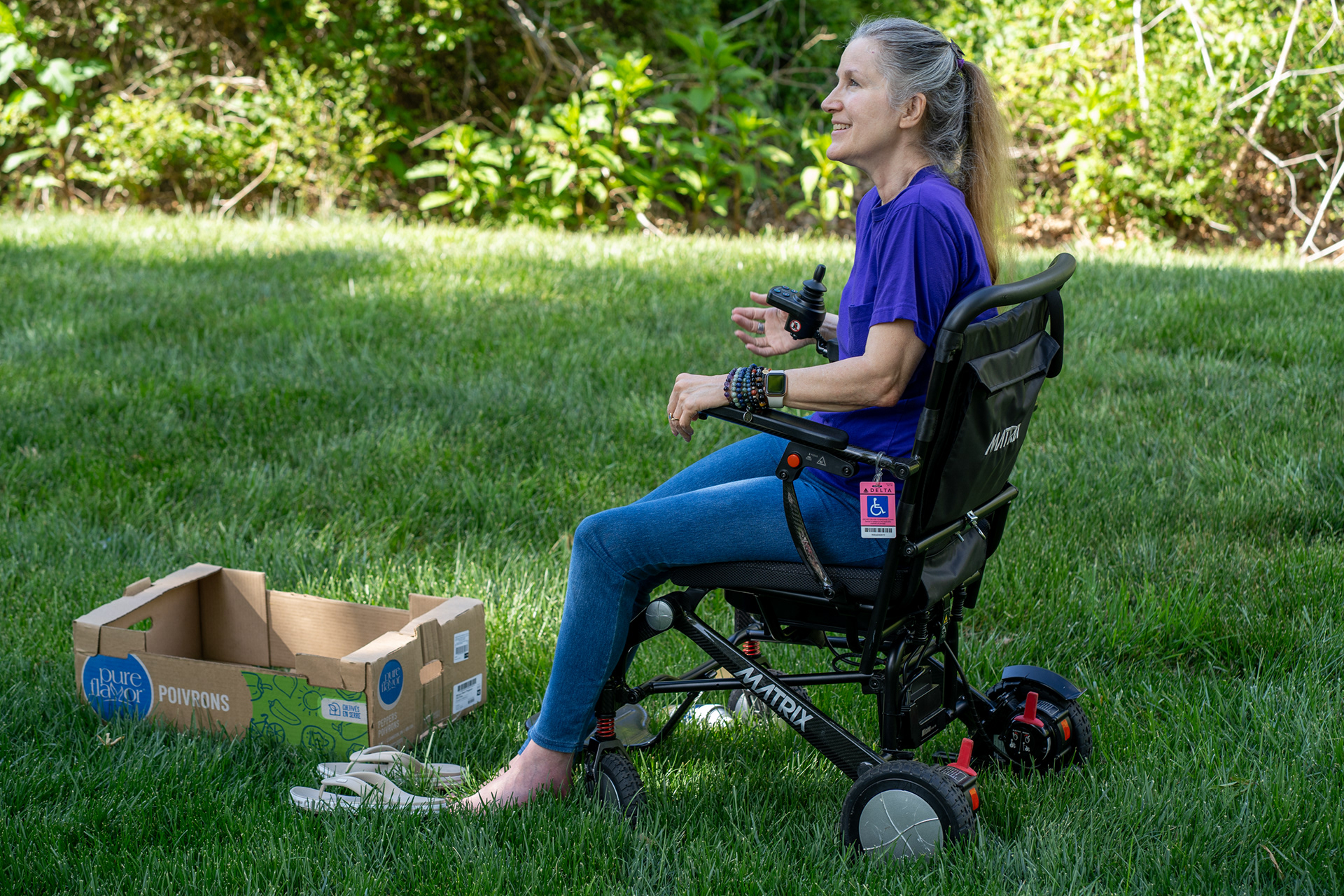
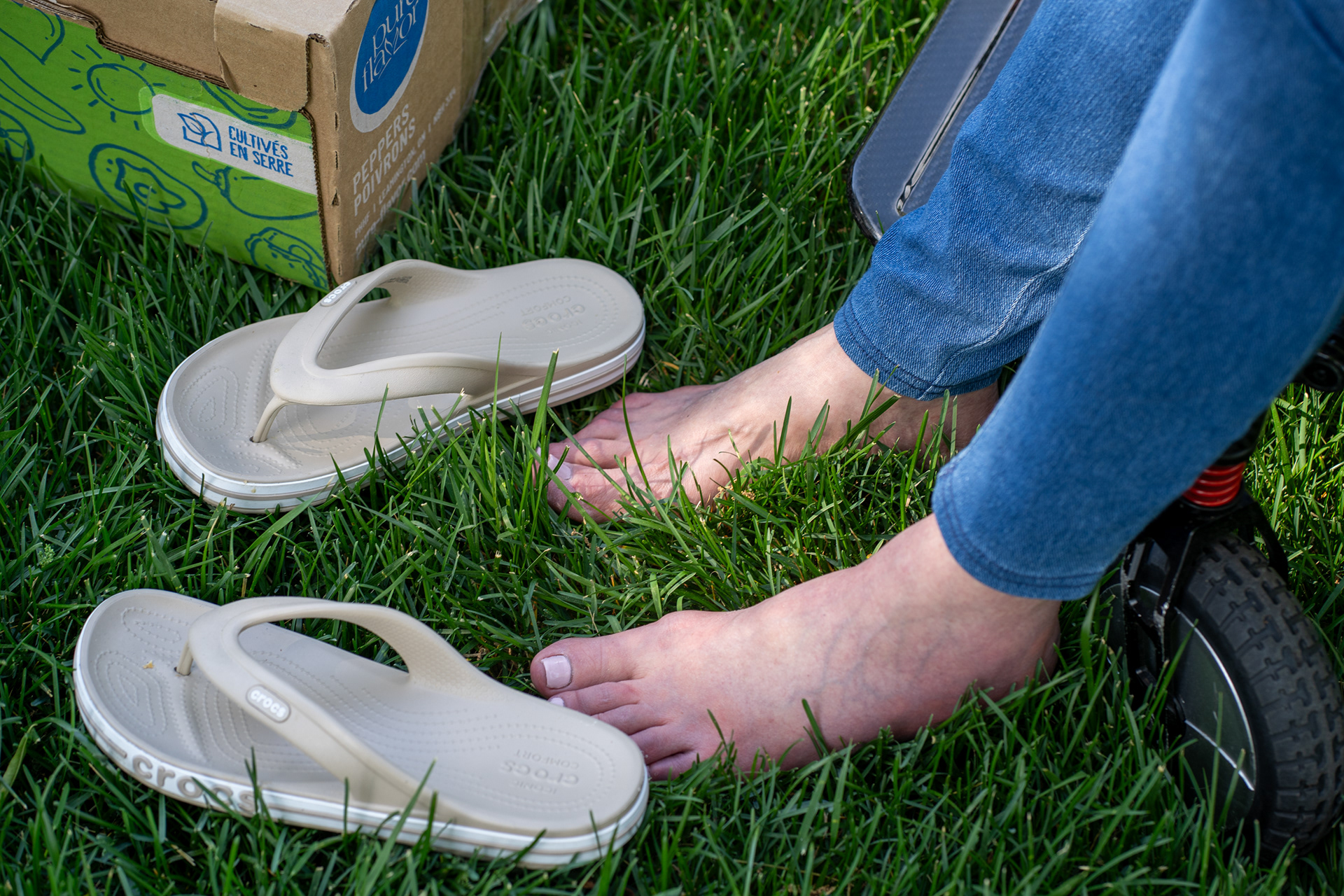
With my assistance, my mom is able to reach a grassy patch at her apartment complex to work on an arts and crafts project for her home decor. This is the first time she has been able to put her bare feet on grass in over two years.
Her decision to move to North Carolina after I graduated high school showed her the harsh reality of the lack of accessibility around the US. Regardless of where she moves, accessibility is not of the utmost importance to many. Relying so heavily on the assistance of others is hard, “It really messes with your psyche” she says.
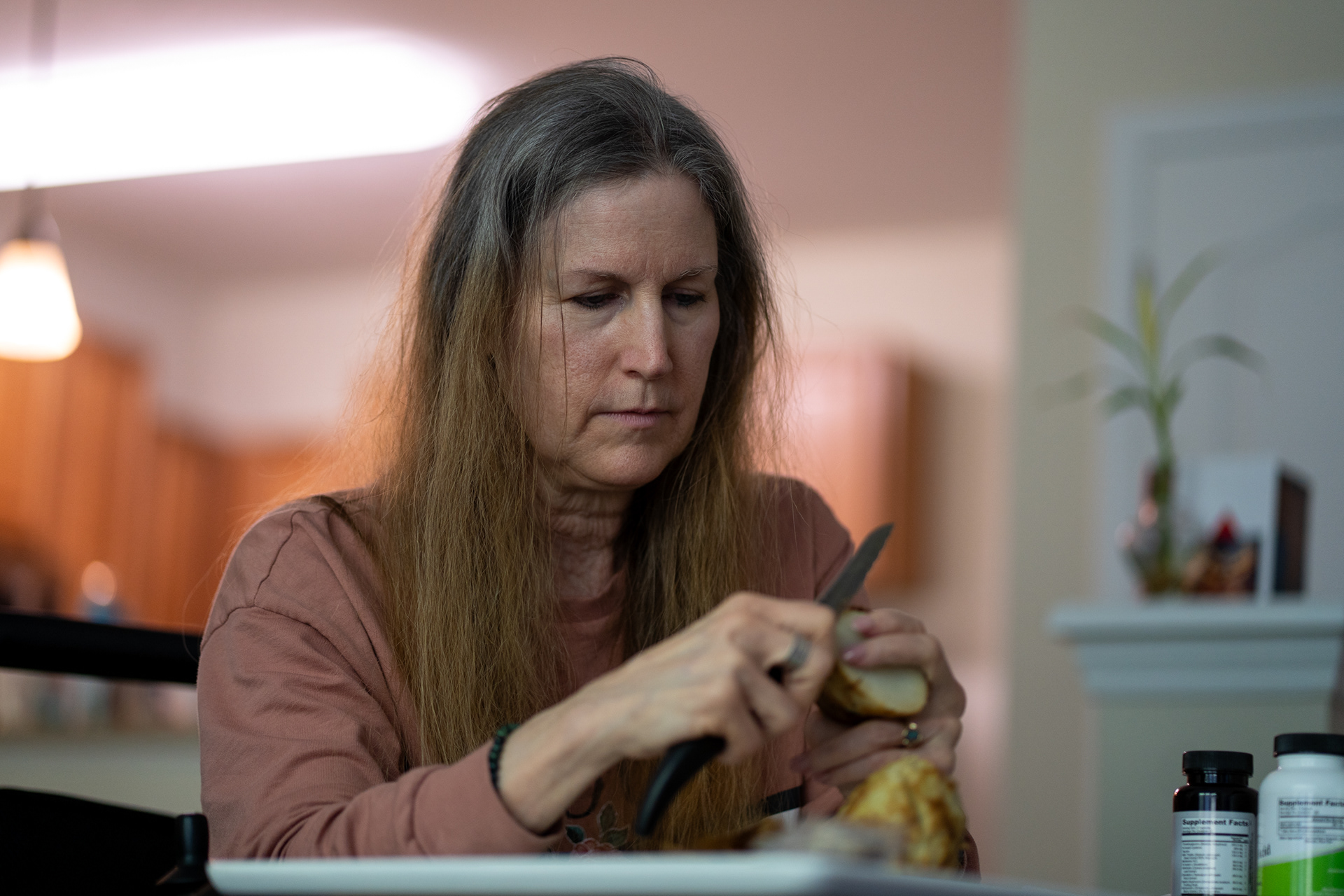
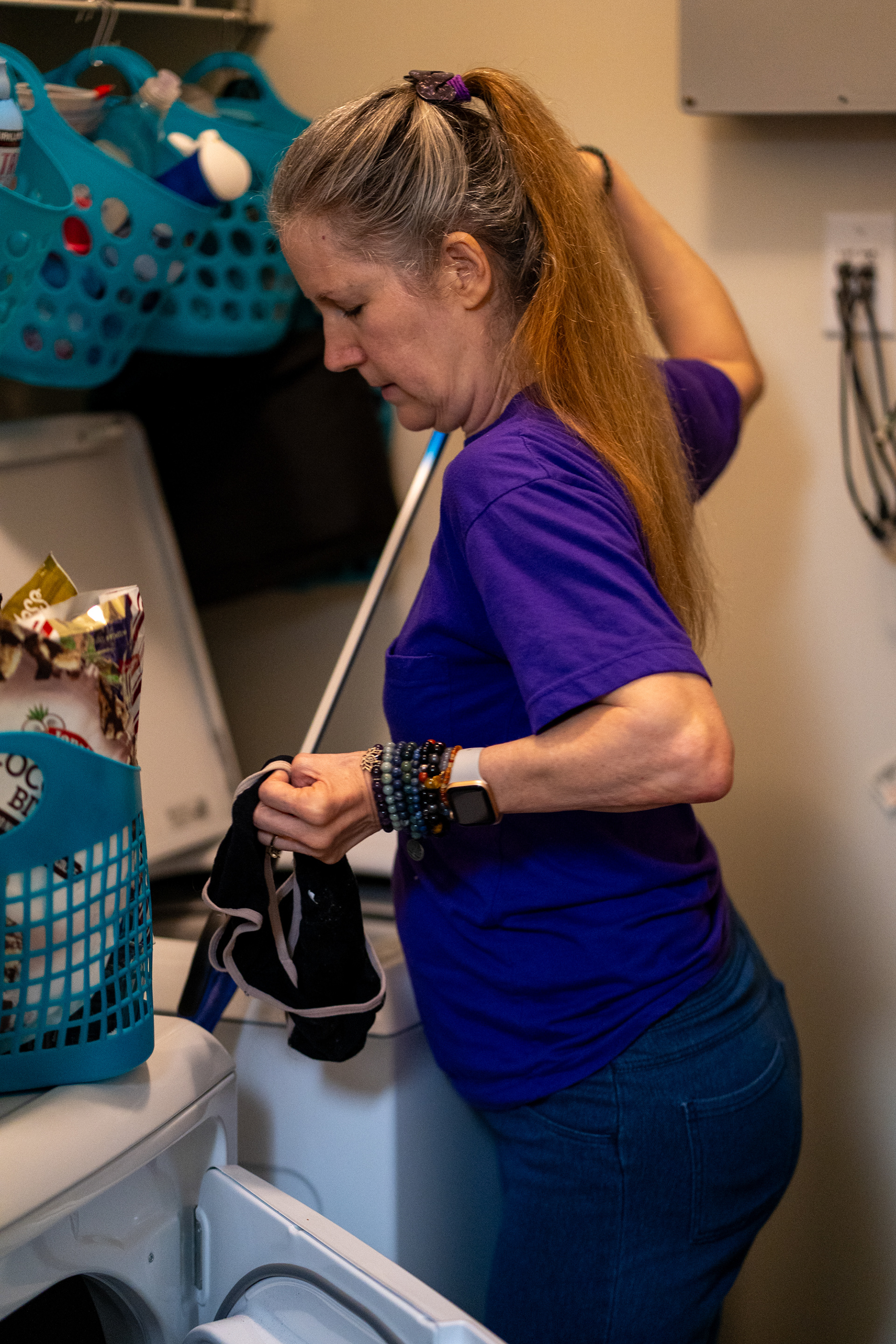
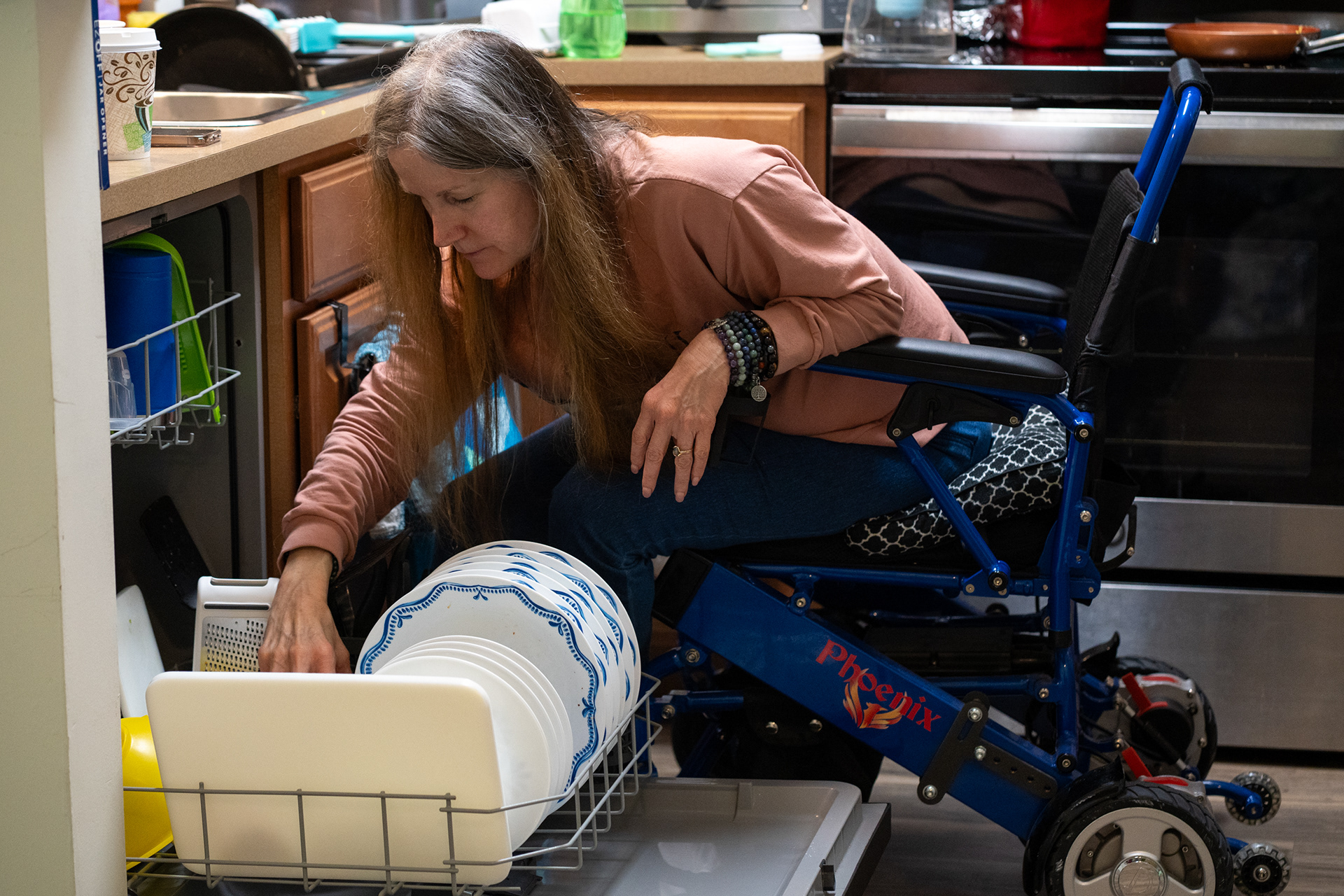
Daily tasks that are done around the home while in a wheelchair or done with an assistance device. Top left, prepare breakfast in her living room since it has more space to fit her wheelchair. Top right, doing laundry and using a grab stick to help pick up something that fell. Bottom, doing the dishes.
Even 45 years after the accident that changed my mom's life, representation and accessibility within the world we live in has not changed to the extent that it should have. Within television, only 2.8% of characters regulars on scripted broadcast series are disabled with more than 95% of disabled characters being played by non-disabled actors.
This is taking away one of the biggest opportunities for creatives to really understand the realities of living with a disability and get first hand accounts. “I wish that there were people that would show that disabled people can be mothers, or even fathers or whatever, and, and raise their children, their able bodied children.”
My mom watching TV in her apartment in Mooresville, North Carolina.
When doctors told her to be realistic– that she would never walk again after the accident– my mom stayed strong. She was determined to prove them wrong and has kept that determination ever since, and when she left the hospital in June 1980, she walked out on her own.
From being totally paralyzed after the accident, receiving surgery to help fuse her spine, and going through intense physical therapy to regain her ability to walk- to now living independently, navigating the world as her mobility changes, and wanting her story to inspire others- she stays confident. “I think people need to keep a positive mind set, don’t let people tell you what you can and cannot do.”
Constance Bailey-Kaiser stands for a portrait in her home with the assistance of her rollator walker, a walker with wheels that helps her be able to walk short distances.